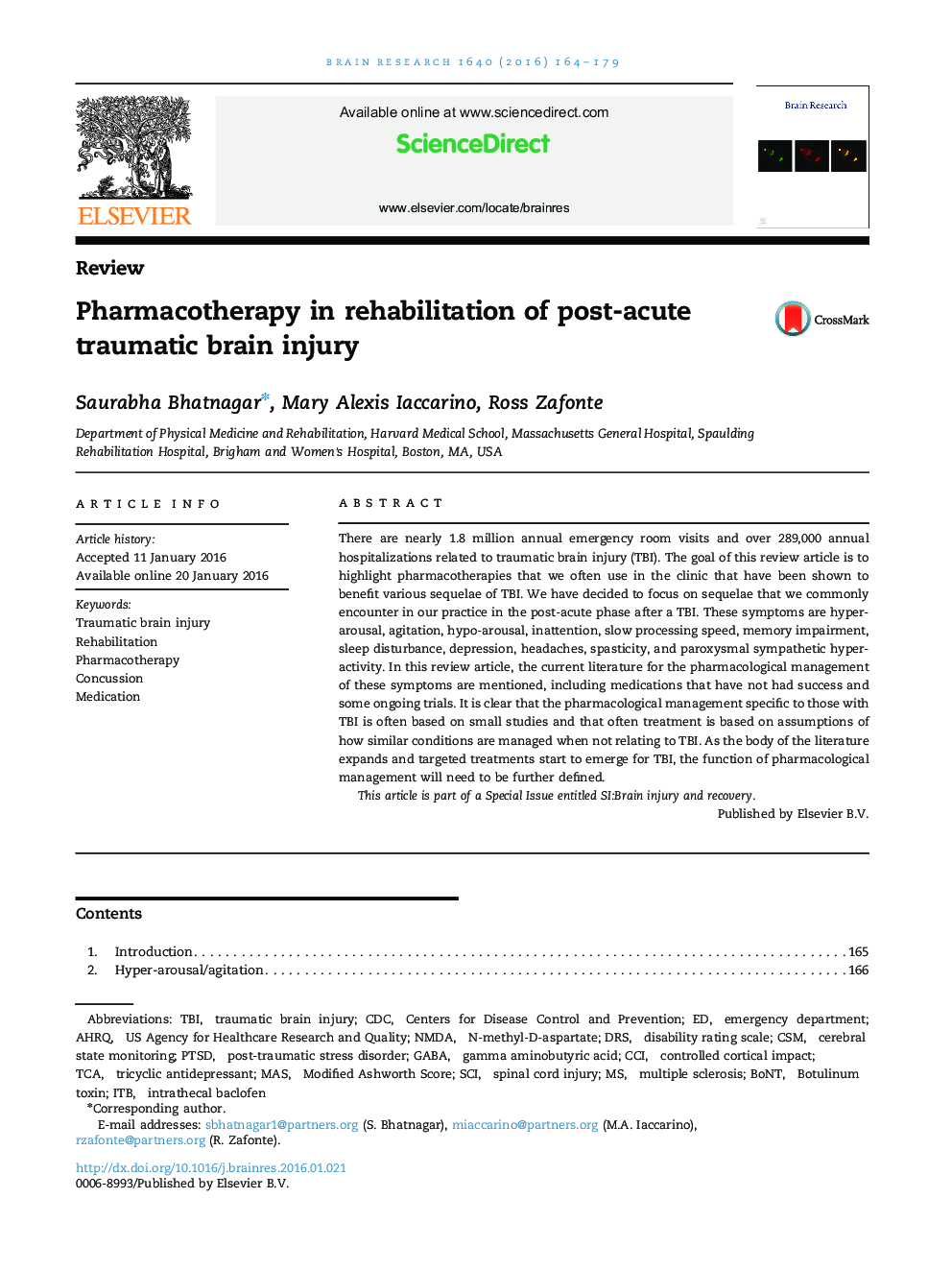| Article ID | Journal | Published Year | Pages | File Type |
|---|---|---|---|---|
| 4323652 | Brain Research | 2016 | 16 Pages |
•Post-acute TBI has numerous symptoms that require pharmacological management.•Beta-blockers work well in reducing hyper-arousal in TBI.•Donepezil can be used to improve cognition and memory after a TBI.•Melatonin and trazodone can be used to improve sleep after a TBI.•Sertraline and citalopram can be used to treat depression after a TBI.
There are nearly 1.8 million annual emergency room visits and over 289,000 annual hospitalizations related to traumatic brain injury (TBI). The goal of this review article is to highlight pharmacotherapies that we often use in the clinic that have been shown to benefit various sequelae of TBI. We have decided to focus on sequelae that we commonly encounter in our practice in the post-acute phase after a TBI. These symptoms are hyper-arousal, agitation, hypo-arousal, inattention, slow processing speed, memory impairment, sleep disturbance, depression, headaches, spasticity, and paroxysmal sympathetic hyperactivity. In this review article, the current literature for the pharmacological management of these symptoms are mentioned, including medications that have not had success and some ongoing trials. It is clear that the pharmacological management specific to those with TBI is often based on small studies and that often treatment is based on assumptions of how similar conditions are managed when not relating to TBI. As the body of the literature expands and targeted treatments start to emerge for TBI, the function of pharmacological management will need to be further defined.This article is part of a Special Issue entitled SI:Brain injury and recovery.
